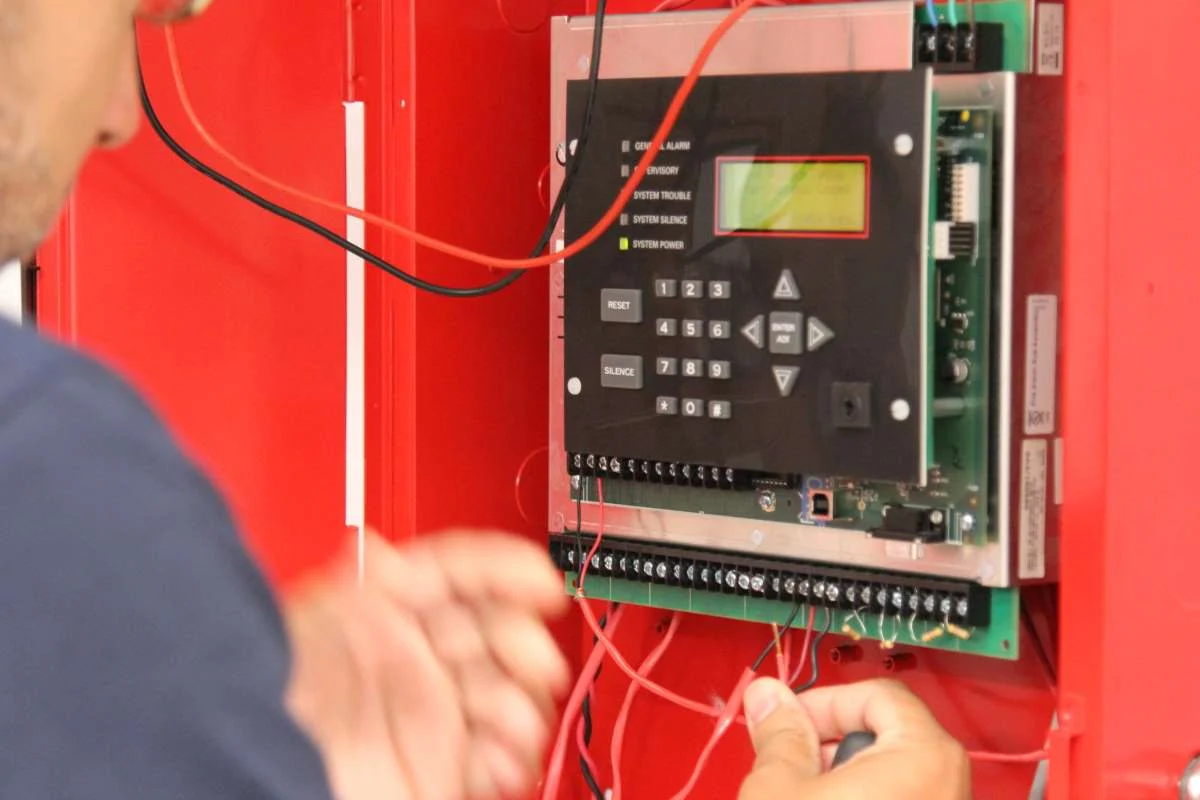A fire alarm panel is a critical component in safeguarding ships, offshore platforms, and marine environments from the devastating effects of fire. Whether carrying passengers or flammable cargo, vessels face unique fire risks that demand reliable detection and alert systems. The right fire alarm panel not only protects lives but also minimizes damage to property and ensures compliance with maritime safety regulations.
What is a Fire Alarm Panel?
A fire alarm panel serves as the central control hub for a fire detection system. It receives signals from various fire detectors—such as smoke, heat, and carbon monoxide (CO) detectors—and triggers alarms to alert crew members and passengers. By monitoring the status of these detection devices, the fire alarm panel helps identify fire hazards early, allowing prompt action to contain and extinguish fires.
In marine environments, fire alarm panels are specially designed to withstand harsh conditions like humidity, saltwater exposure, and vibrations. These panels come in various types, from conventional systems that divide areas into zones, to more advanced addressable systems that pinpoint the exact location of a detected fire.
Why Are Fire Alarm Panels Crucial on Ships?
Ships and offshore facilities present a challenging environment for fire safety. The presence of flammable fuels, tight quarters, electrical systems, and, in passenger vessels, large numbers of people, significantly increases the risk and potential impact of fire. Delayed detection can lead to catastrophic consequences, including loss of life, cargo damage, and environmental disasters.
A fire alarm panel acts as the first line of defense, providing early warnings that are crucial for evacuation and firefighting efforts. Without an efficient fire alarm panel, fires might spread unnoticed until they become uncontrollable, putting lives and assets at serious risk.
Components of Marine Fire Alarm Systems
Understanding the components connected to a fire alarm panel is key to appreciating its role:
Fire Alarm Control Panel: The “brain” of the system, this panel monitors inputs from detectors and controls alarm outputs.
Fire Detection Devices: These include smoke detectors, heat detectors, and CO detectors, which detect signs of fire such as smoke, elevated temperatures, or gas emissions.
Alarm Notification Devices: Sirens, strobes, and voice evacuation systems alert personnel on board to fire hazards.
Integration with Other Safety Systems: The fire alarm panel often links with fire suppression systems like sprinklers and portable extinguishers to automate emergency responses.
Each component must work seamlessly with the fire alarm panel to ensure timely and accurate fire detection and response.
Leading Manufacturers and Trusted Solutions
Selecting a fire alarm panel from trusted manufacturers is essential for marine safety. Brands like Johnson Controls, Thorn Security, and Tyco are industry leaders known for producing robust, reliable equipment tailored to challenging environments such as ships and offshore platforms.
At Atlas, the focus is on providing cutting-edge marine fire alarm panels and detection systems designed to meet the stringent demands of the marine, oil, gas, and offshore industries. Partnering with these market leaders ensures that vessels are equipped with proven technologies, offering peace of mind for crew members and ship operators alike.
Fire Alarm Detector Testing: Ensuring Reliability and Safety
A fire alarm panel is only as effective as the detectors feeding it information. Regular testing of fire detection devices is critical to maintaining system reliability and functionality. However, conducting these tests aboard ships poses unique challenges — limited space, high access points, and safety risks related to climbing ladders or reaching confined areas.
Innovative testing tools like the Solo product range provide a safer and more efficient solution. Designed to eliminate the need for ladders or climbing, these detector testers enable quick functional checks of smoke, heat, and CO detectors directly at their installation point.
Moreover, specialized testers are available for complex systems like multi-sensor detectors and aspirating smoke detectors (ASD), which are widely used in marine environments. Routine testing with reliable tools helps confirm that the fire alarm panel receives accurate alerts and remains fully operational at all times.
Benefits of Advanced Fire Alarm Systems for Ships
Installing a high-quality fire alarm panel and detection system offers numerous benefits:
Early Fire Detection: Detecting fire incidents promptly reduces response times, limiting potential damage and improving safety for all on board.
Reduced Downtime: Quick detection and intervention help avoid extensive damage that could take ships out of service for repairs.
Regulatory Compliance: Marine fire alarm systems must comply with international maritime safety standards. Reliable panels ensure vessels meet these requirements, avoiding penalties and ensuring safe operations.
Integration Capabilities: Modern fire alarm panels can integrate with other safety and operational systems on board, improving overall vessel management during emergencies.
These advantages make investing in advanced fire alarm panels a crucial part of any ship’s safety infrastructure.
How to Maintain Your Fire Alarm Panel and Detection System
Maintenance is vital to keeping the fire alarm panel and its connected devices functioning optimally:
Routine Testing: Conduct functional tests regularly using specialized detector testers to ensure smoke, heat, and CO detectors are responsive.
Visual Inspections: Check for any physical damage or obstructions around detectors and alarm devices.
Professional Servicing: Engage certified technicians for comprehensive inspections, system calibration, and software updates.
Replace Faulty Components: Promptly address any detected faults in detectors or alarm devices to maintain overall system integrity.
By following maintenance best practices, ship operators can ensure their fire alarm panel and detection system remain ready to protect against fire hazards at all times.
Takeaway
A reliable fire alarm panel is indispensable for marine safety, providing early warnings that save lives and protect property from the dangers of fire at sea. With specialized designs for harsh maritime environments, fire alarm panels from trusted manufacturers ensure vessels meet safety regulations while enhancing crew confidence.
Regular testing and maintenance, supported by innovative detector testing tools, help keep these systems operational and dependable. For ship operators seeking comprehensive fire protection solutions, partnering with expert providers like Atlas offers access to high-quality equipment and expert support.







